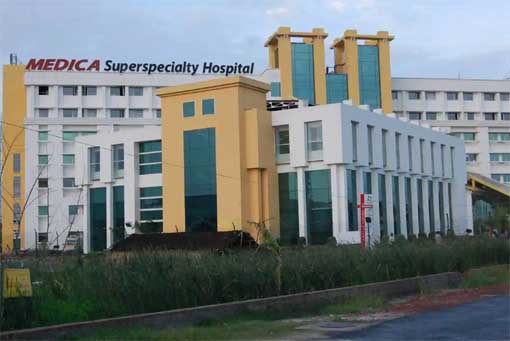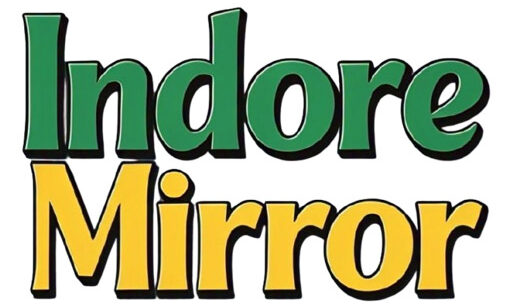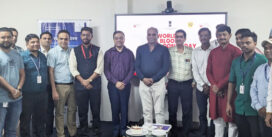Medica Superspecialty Hospital implemented absorbable stent

New generation absorbable stent offers a new light to angioplasty patients
Kolkata, 10th August 2021: With an aspiration to be at the forefront to introduce the latest technology in healthcare, Medica Superspecialty Hospital the largest chain of private hospitals in Eastern India has taken a giant leap in the field of angioplasty by introducing and implanting the latest available indigenous Absorbable Stent / Bio Resorbable Scaffold (BRS). Medica Superspecialty Hospital is one of the few hospitals in India to get approval from the Government of India to implement this technology for treating patients. This is the latest technology used for Angioplasty treatment developed by an Indian brand named MeRes100 from Meril Life Sciences. Medica adapted this technology in 2021. The technicalities of Bio Resorbable Scaffold (BRS) were virtually discussed in the presence of cardiovascular diseases (C45t6oVD) team of doctors, Dr Dilip Kumar, Dr Arindam Pande, Dr Soumya Patra. The session was moderated by Dr Rabin Chakraborty.
Dr Dilip Kumar, Senior Consultant Interventional Cardiologist & Electrophysiologist, Medica Superspecialty Hospital commented, “The new Bioresorbable Scaffold (BRS), a non-metallic mesh tube that is used to treat a narrowed artery, which is like a stent, but slowly dissolves once the blocked artery can function naturally again and stays open on its own. Similar to a small mesh tube, BRS is designed to help open up a blocked artery in the heart and restore blood flow to the heart muscle. BRS gradually dissolves once the artery can stay open on its own, potentially allowing the blood vessel to function naturally again.
Dr Dilip Kumar further stated, “We at Medica Superspecialty Hospital are committed to offer the latest technology to our patients. Absorbable Stent or BRS is the latest advancement in the field of Angioplasty, it is a boon for the patients who would be undergoing angioplasty as it eliminates the concern of carrying the metallic stent lifelong in their body. Although metallic drug-eluting stents are commonly adopted for the treatment of coronary artery disease, with the permanent metallic stents there is a risk of adverse events occurring every year and even very late adverse events are also reported. BRS technology can be a better alternative as bioresorbable scaffold will dissolve over a period post healing of the lesion. It is very effective to young patients.”
Cardiovascular diseases (CVD), such as coronary artery disease, are the leading cause of mortality in India, with Indians more prone to suffer from CVD-related mortality than the rest of the world. This problem is particularly prevalent in Indian scenario where the prevalence of coronary artery disease in young men is twice that of those in western nations. Besides the stressful life and sedentary lifestyle, there is a rise in the prevalence of other non-communicable diseases in India amongst the younger population, including Diabetes Mellitus, obesity and hypertension. All these diseases are very closely linked with CVD. During COVID-19 pandemic there has been a significant rise in cardiovascular disease. People recovering from COVID 19 are prone to cardiovascular disorders, including myocardial injury, arrhythmias, acute coronary syndrome and venous thromboembolism.
Dr Arindam Pande, Senior Interventional Cardiologist, commented, “This new BRS was launched earlier this year and we have deployed a reasonable number of these scaffolds in ideal patients which includes a recently done PTCA with thin strut soluble stent-MeRes100 in Covid recovered patient. So far, we have implanted in seven patients, and everyone is keeping well. Being treated with BRS means, one does not have a permanent implant allowing one’s artery to resume a more natural function without stitches/sutures BRS has many benefits like it eliminates the concern about receiving a permanent implant. It helps to reduce chance of future coronary artery disease symptoms. BRS is made of a polymer called poly-L-Lactide (PLLA), similar to the material used in dissolvable.”
Dr Pande further added, “In contrast to the conventional stent, complete resorption of the scaffolds results in “liberation of the vessel from the metallic cage” and helps the artery to regain its natural tone, this will reduce the lifelong dependency of patients on blood thinning medication and will pose no hindrance if future procedures need to be performed in the same artery.”
Dr Soumya Patra, Consultant, Interventional Cardiologist, commented, “We have treated patients who had from post covid symptoms. One of the patients was M. B. Shome, a 56-year-old hypertensive male with history covid 19 in recent history, complained of chest discomfort and shortness of breath as he was doing his routine activity. After he was admitted to Medica Hospital, where he underwent routine tests, including an electrocardiogram (ECG)and ECHO. Based on the investigation reports and his ongoing chest pain, a coronary artery angiography was performed. The results indicated the double vessel disease, with significant lesions and blockages in his coronary arteries, suggesting the need for angioplasty. Considering his age and the type of lesion in his artery, we decided to implant the recently launched indigenous dissolving stent or BRS in his right coronary artery. Post successful angioplasty Mr. Shome was discharged, and he was advised to modify his lifestyle. Out of the 4 cases that I have done so far, all patients went back home the next day of the procedure and their stay at the hospital was uneventful.”
Dr Rabin Chakraborty, Senior Vice Chairman Medica Superspecialty Hospital, who was also moderating the session commented, “Medica Superspecialty Hospital, has always been the forerunner when it comes to advancement of technology. With this newly available technology at Medica Hospital, Kolkata, the people of West Bengal and its neighbouring will be highly benefitted.”
MeRes100 BRS is the world’s first-ever 100-micron thin-strut scaffold and has received approval from the Drugs Controller General of India (DCGI) and CE Approval in Europe. MeRes100 has been studied in research trials in India and globally, supporting its positive safety and efficacy.


